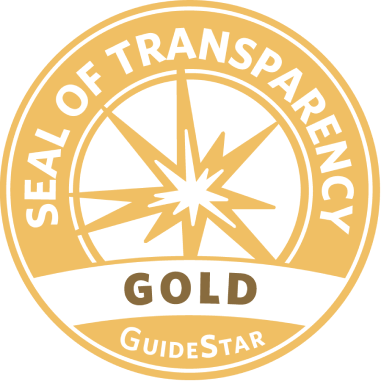In conflict-affected regions, the challenges faced by individuals, particularly women and young girls, often extend beyond physical and economic hardships. Emotional and psychological trauma becomes an unseen epidemic, affecting millions who lack access to proper mental health resources. In such contexts, online therapy emerges as a transformative tool, bridging the gap between individuals in need and qualified mental health professionals, even in the most remote and war-torn areas.
As an NGO dedicated to empowering marginalized adolescent girls and young women, the Omid Foundation recognizes the profound role online therapy can play in addressing the mental health crises faced by those living in conflict areas. This article explores how online therapy is revolutionizing access to mental health care, breaking down barriers, and offering a lifeline of hope and healing.
The Growing Need for Mental Health Support
Conflict zones are marked by displacement, violence, and instability. These factors create a fertile ground for mental health issues such as post-traumatic stress disorder (PTSD), anxiety, depression, and grief. Women and girls, often disproportionately affected by violence and societal restrictions, bear the brunt of these psychological burdens.
In many of these regions, cultural stigmas surrounding mental health prevent individuals from seeking help. Furthermore, limited infrastructure, a lack of trained professionals, and ongoing violence make in-person therapy virtually inaccessible. This gap in mental health care services exacerbates the cycle of trauma, leaving individuals and communities vulnerable to long-term psychological harm.
Online Therapy as a Game-Changer
Online therapy—delivered through video calls, chat platforms, or even text messages—has emerged as a viable solution to these challenges. By leveraging digital technology, therapists can provide support to individuals who would otherwise have no access to mental health services.
- Accessibility Across Borders
Online therapy eliminates geographical barriers, enabling individuals in remote or conflict-affected regions to connect with therapists from around the world. This is particularly significant in areas where local mental health professionals are scarce or where cultural norms restrict women from traveling to seek help.
- Anonymity and Reduced Stigma
The anonymity offered by online platforms helps reduce the stigma associated with seeking therapy. Clients can participate in sessions from the safety and privacy of their own homes, which is especially important in cultures where discussing mental health is taboo.
- Flexibility and Convenience
Online therapy allows for greater flexibility, accommodating the unpredictable schedules of individuals living in unstable environments. Sessions can be scheduled during times of relative safety or conducted asynchronously via messaging platforms.
- Cost-Effectiveness
Online therapy is often more affordable than in-person sessions, making it accessible to a broader demographic. Additionally, it eliminates travel costs and the need for physical infrastructure, further reducing financial barriers.
The Role of NGOs in Promoting Online Therapy
Organizations like the Omid Foundation play a critical role in bringing online therapy to underserved populations. Through innovative programs and partnerships, NGOs can address both the logistical and cultural challenges of implementing online mental health services in conflict areas.
- Raising Awareness
Many individuals in conflict zones are unaware of the availability and benefits of online therapy. NGOs can conduct awareness campaigns to educate communities about mental health and the resources available to them.
- Providing Technology and Training
Access to technology is a significant barrier for individuals in low-resource settings. NGOs can provide smartphones, tablets, or internet access to those in need, ensuring they have the tools required to participate in online therapy. Additionally, they can train local facilitators to support clients in navigating digital platforms.
- Partnering with Global Experts
By collaborating with international mental health professionals and organizations, NGOs can ensure that clients receive high-quality, culturally sensitive care. These partnerships also enable the exchange of knowledge and best practices, further strengthening the impact of online therapy programs.
- Creating Safe Spaces
In conflict zones, privacy and safety are paramount. NGOs can work to establish secure communication channels and ensure that online therapy platforms are encrypted and confidential, protecting clients from potential risks.
Success Stories from the Field
Online therapy has already demonstrated its potential to transform lives in conflict areas. Consider the case of Leila, a young woman living in a war-torn region. Displaced from her home and separated from her family, Leila struggled with severe anxiety and depression. Through an online therapy program facilitated by an NGO, she was able to connect with a therapist who guided her through techniques to manage her emotions and rebuild her sense of self-worth.
Leila’s story is not unique. Across the globe, countless individuals are finding hope and healing through online therapy. For many, it represents the first step toward reclaiming their mental health and breaking free from the cycle of trauma.
Challenges and Limitations
While online therapy holds immense promise, it is not without challenges. Limited internet connectivity, especially in rural or conflict-affected areas, can hinder access. Language barriers and cultural differences may also impact the effectiveness of therapy.
Moreover, online therapy requires a degree of technological literacy that not all individuals possess. NGOs must invest in training and support to ensure that clients can navigate digital platforms with confidence.
Finally, the emotional intensity of certain therapeutic sessions can be difficult to manage remotely. Therapists must be equipped with strategies to address crises or emergencies when they arise.
Looking Ahead: The Future of Online Therapy
The potential of online therapy in conflict areas is vast, but its success depends on sustained investment, innovation, and collaboration. Governments, NGOs, and private sector partners must work together to address the barriers to implementation and scale successful models.
Emerging technologies, such as artificial intelligence (AI) and virtual reality (VR), also offer exciting possibilities for the future of online therapy. AI-powered chatbots, for example, can provide immediate support during crises, while VR tools can create immersive therapeutic environments that help clients process trauma in a safe and controlled manner.
Conclusion
In conflict areas, where the need for mental health support is most acute, online therapy offers a lifeline of hope. By overcoming geographical, cultural, and logistical barriers, it provides individuals with access to the care they need to heal and thrive.
The Omid Foundation remains committed to leveraging innovative solutions like online therapy to empower women and girls in conflict zones. Together, we can ensure that no one is left behind in the pursuit of mental well-being, even in the most challenging circumstances.
Through continued advocacy, collaboration, and investment, we can harness the power of online therapy to create a brighter, healthier future for all.

